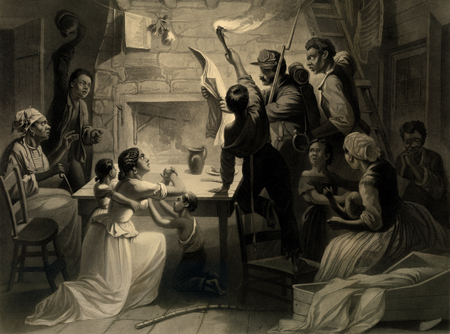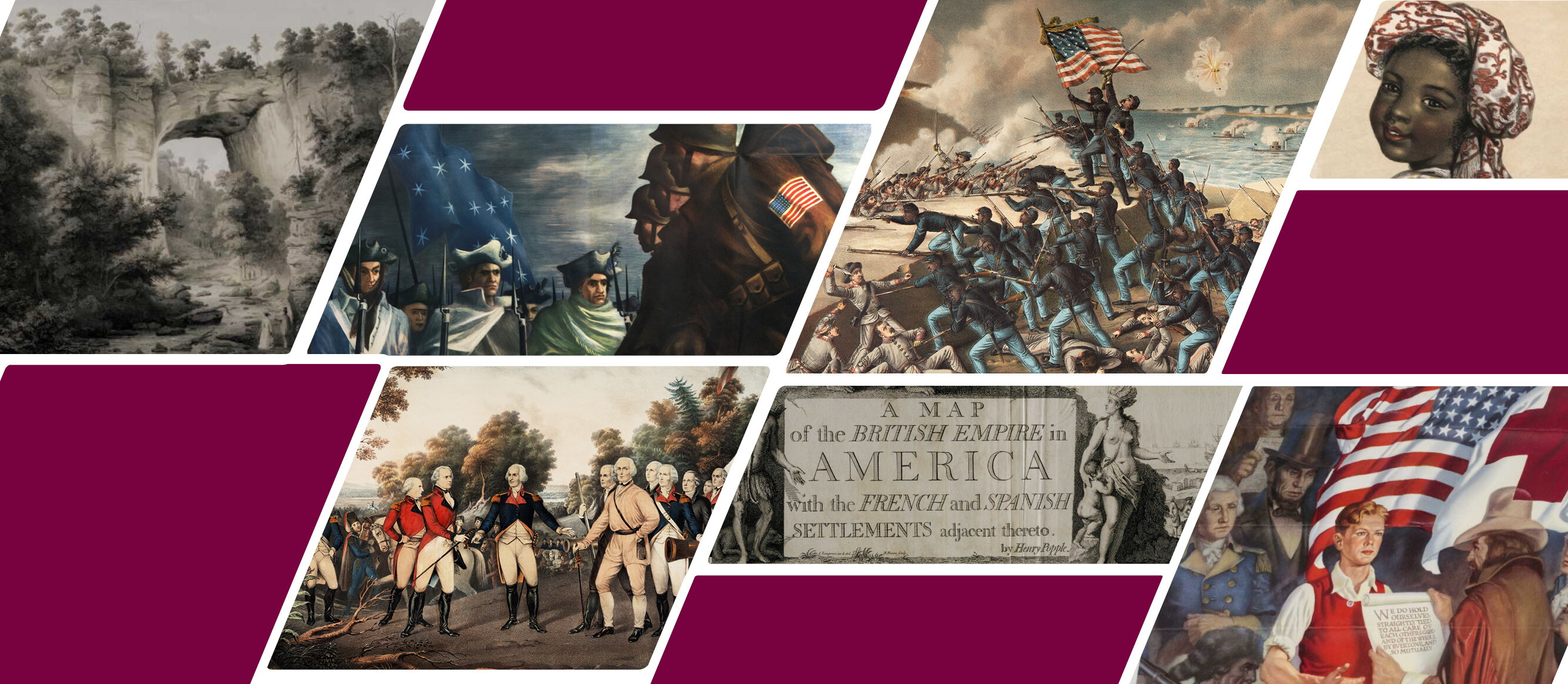 Juneteenth (June 19) commemorates the end of slavery in the United States. On June 19, 1865, Union soldiers led by Major General Gordon Granger landed at Galveston, Texas, with news that the Civil War was over and that enslaved people were free. While the day has been celebrated ever since, it was first recognized as a federal holiday in 2021.
Juneteenth (June 19) commemorates the end of slavery in the United States. On June 19, 1865, Union soldiers led by Major General Gordon Granger landed at Galveston, Texas, with news that the Civil War was over and that enslaved people were free. While the day has been celebrated ever since, it was first recognized as a federal holiday in 2021.
Videos
-
Juneteenth: Exploring Freedom’s Stories, a short film from our partners at Annenberg Classroom
- A Conversation with Annette Gordon-Reed moderated by Professor Edward L. Ayers about her book On Juneteenth
Spotlights on Primary Sources
Gilder Lehrman curators explain and explore documents from the Gilder Lehrman Collection.
- The Emancipation Proclamation, January 1, 1863
- “Men of Color, To Arms! To Arms,” 1863
- The Union Army and Juneteenth, 1865
- Ratifying the Thirteenth Amendment, 1866
- The Fifteenth Amendment, 1870
- Nominating an African American for vice president, 1880
- Frederick Douglass on Jim Crow, 1887
- Frederick Douglass on the disfranchisement of Black voters, 1888
Historical Documents in the Gilder Lehrman Collection
Honoring Juneteenth with Documents from the Gilder Lehrman Collection featuring
- The Emancipation Proclamation, 1863
- A lithograph printed in 1864 by Lucius Stebbins showing a soldier “Reading the Emancipation Proclamation”
- A letter from Frederick Douglass to John Sherman in 1888 on the “emancipation fraud”
- Booker T. Washington’s speech on the end of slavery given to commemorate Abraham Lincoln’s 100th birthday, 1909
Lesson Plans
- “Juneteenth and Emancipation”: Students analyze primary source documents that convey the realities of slavery in the United States, represent various viewpoints on emancipation, and provide context for the federal holiday of Juneteenth.
Self-Paced Courses
- Emancipation led by James Oakes, The Graduate Center of the City University of New York
- African American History since Emancipation led by Peniel Joseph, University of Texas, Austin
- America’s First Civil Rights Movement led by Kate Masur, Northwestern University
Essays
- “‘Rachel Weeping for Her Children’: Black Women and the Abolition of Slavery” by Margaret Washington, History Now 5: Abolition (Fall 2005)
- “Allies for Emancipation? Black Abolitionists and Abraham Lincoln” by Manisha Sinha, History Now 18 (Winter 2008)
- “Frederick Douglass and the Dawn of Reconstruction” by Douglas R. Egerton, History Now 55 (Fall 2019)
- “Frederick Douglass on the Disfranchisement of Blacks in the South” by Lucas Morel, History Now 57 (Summer 2020)
